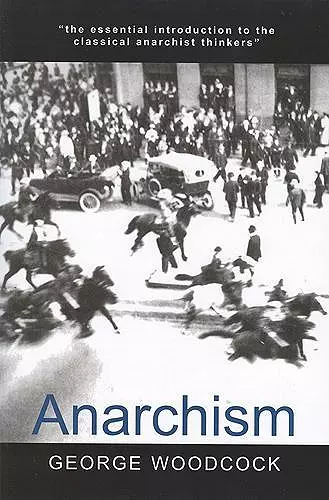Anarchism
Format:Paperback
Publisher:Broadview Press Ltd
Published:1st Nov '04
Currently unavailable, and unfortunately no date known when it will be back

This non-fiction paperback, "Anarchism" from George Woodcock, was published 1st November 2004 by Broadview Press Ltd.
ISBN: 9781551116297
Dimensions: 229mm x 152mm x 22mm
Weight: 580g
432 pages